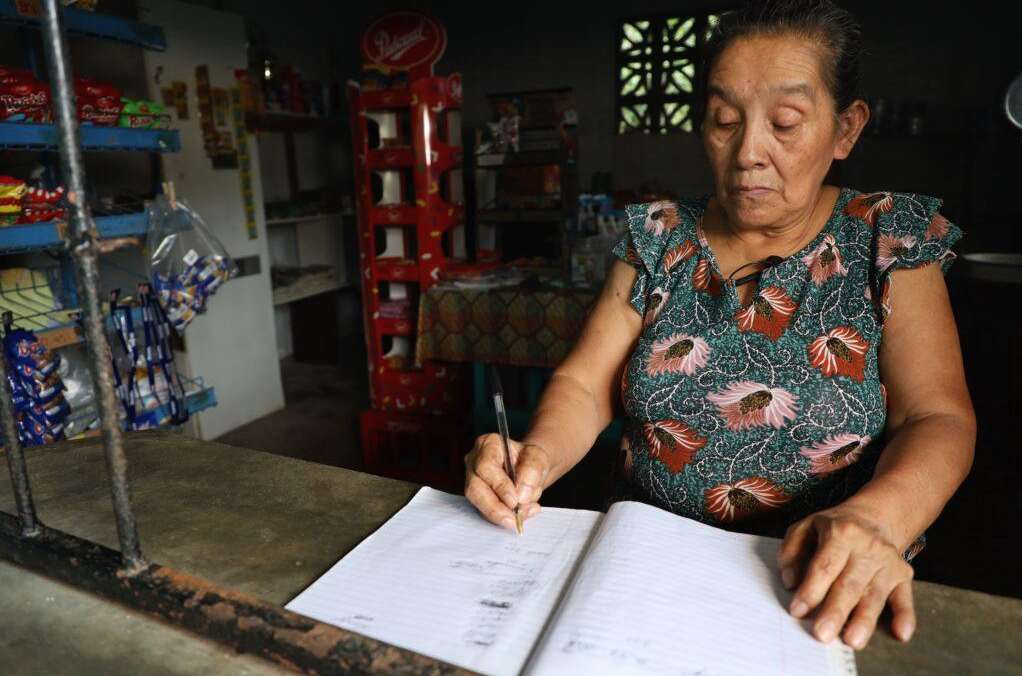Financial inclusion and education have emerged as key enablers for sustainable development in its environmental, social and productive dimensions. In Latin America, where high levels of informality, inequality and financial exclusion persist, their promotion becomes urgent and strategic. These elements not only facilitate access to basic financial services, but also strengthen the economic resilience of households and businesses, promote formalization, and help reduce the structural gaps that characterize the region.
Latin America presents significant heterogeneity in terms of financial inclusion and education. While countries such as Chile and Uruguay have made notable progress thanks to solid regulatory frameworks and greater banking penetration, others such as Colombia and Panama still face significant gaps, especially in rural areas and among microentrepreneurs. In Colombia, despite initiatives such as the National Policy on Economic and Financial Inclusion and Education and government programs such as the “Bank of Opportunities,” there remains a high dependence on various forms of informal credit, such as the so-called “gota a gota” loans, with interest rates exceeding 300% annually. According to the National Department of Statistics, 51% of microentrepreneurs do not have formal savings or credit products.
Chile, for its part, stands out for its digital payment system and the CuentaRUT program, a demand deposit account that includes a debit card with no maintenance or opening costs, which has banked millions of people. However, financial education is still incipient. Panama shows high nominal financial inclusion, but with little depth in credit products for SMEs and vulnerable populations. Uruguay, with one of the highest banking rates in the region, has successfully implemented financial education programs in schools and through digital platforms.
Financial innovation has been driven by FinTech technology and public-private partnerships. Among the most relevant trends are digital wallets and banking correspondents that have expanded access to financial services in remote areas, microcredits with alternative scoring that use information from non-traditional sources such as non-financial transactions to assess risk.
Despite these advances, financial education remains weak. In Colombia, according to a study promoted by Asobancaria, more than 40% of vendors in Bogotá’s marketplaces are unaware of basic concepts such as the usury rate. This knowledge gap persists even with innovative initiatives promoted by banks in Colombia that offer online courses and encourage children’s savings. In other countries of the region, innovative strategies have been promoted, such as gamified financial education platforms, like the CAPUF “Learn and Undertake” video game in Uruguay, available for free, or the EFEC Program in the same country, which incorporates financial education into the school and adult curriculum. In Chile, the “National Financial Education Plan” has trained more than 2 million people through partnerships with public and private institutions, in addition to traditional strategies such as fairs, workshops, and contests that combine mass dissemination with practical learning. These efforts, although significant, still face major challenges in effectively connecting the educational offer with the specific needs of groups such as informal traders, requiring more targeted and sustained strategies.
Precisely to effectively address these limitations, it is essential to have robust and detailed data. The availability of disaggregated information is crucial because it allows for precise identification of the specific gaps affecting each population, as well as outcome indicators that measure not only access, but also the effective use and quality of services.
A behavioral approach that understands biases such as loss aversion, short-termism, and distrust is essential, along with a choice architecture that facilitates the understanding and use of financial products. Likewise, it is crucial to overcome regulatory obstacles, such as the lack of open data strategies and legislation on maximum interest rates that limit access to credit for high-risk populations.
Multilateral banks play a crucial role in promoting financial inclusion and education policies, and coordination with governments is necessary to promote priority actions. Among these are the creation of guarantee funds that reduce the risk of loans to SMEs and vulnerable sectors, the issuance of social impact bonds to finance financial education programs with measurable targets, and the formation of alliances with FinTechs to develop scalable, low-cost products. It is also essential to facilitate concessional credit lines for microfinance institutions serving excluded populations.
Development banks in the region must work with governments to harmonize standards so that products are comparable and transferable across countries, finance pilots of innovative products with rigorous impact evaluation, strengthen local capacities in financial institutions and governments, and mobilize private capital through blended finance mechanisms and partial guarantees. The experience of multilateral banks can also be leveraged to promote innovative products such as green loans for energy efficiency and productive reconversion, parametric insurance for farmers, supply chain financing based on business records, and microfinancing platforms for socio-environmental projects.
Financial inclusion and education are not only a means of accessing credit, but a cross-cutting enabler of sustainable development. They allow SMEs to innovate, families to manage risks, and communities in general to move towards low-carbon economies. The countries of Latin America have the opportunity to lead this process through coordinated policies, productive innovation, and a long-term vision that prioritizes the well-being of people and the planet.
*Machine translation, proofread by Ricardo Aceves.












